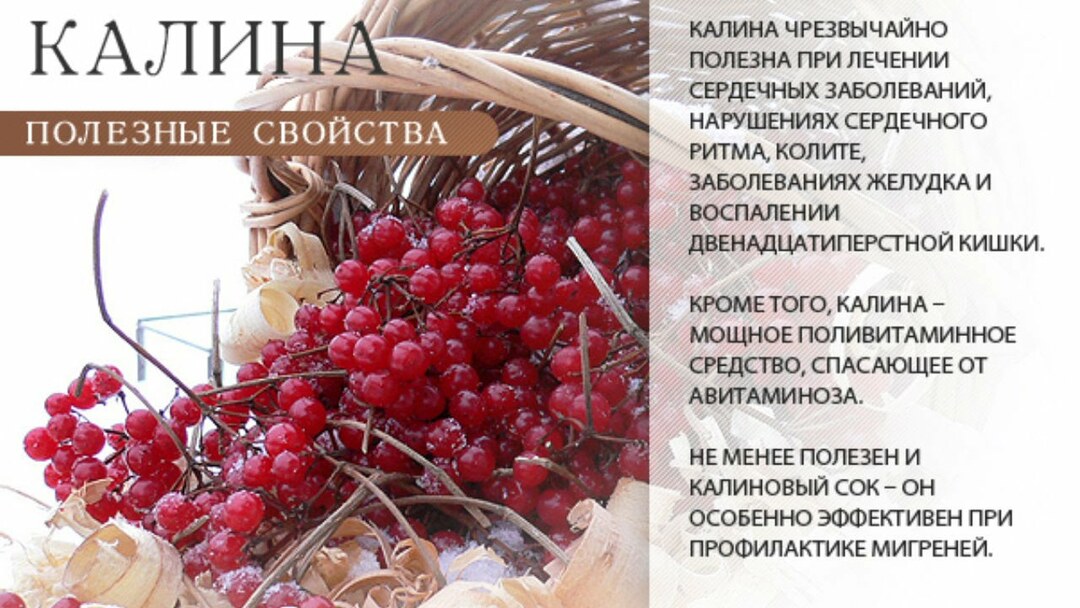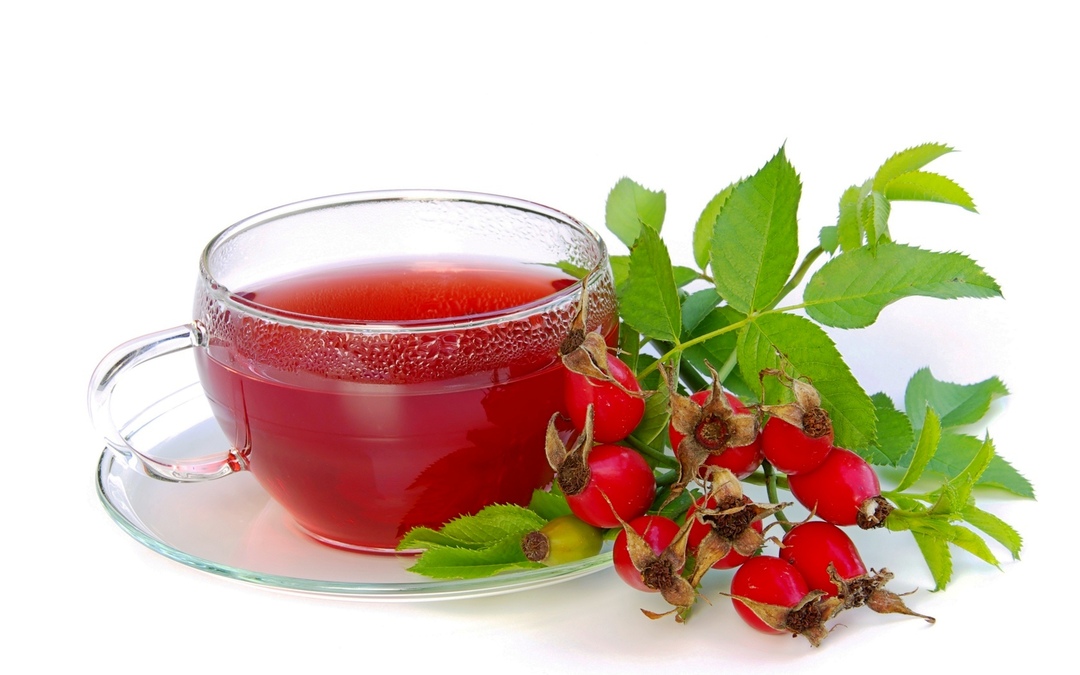Eleuterococcus: indications for use, contraindications, properties
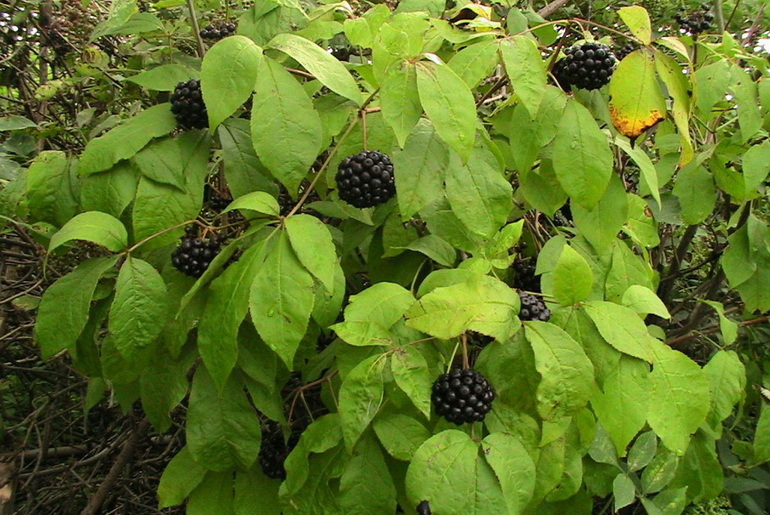
Eleutherococcus is a widely distributed and well-known medicinal plant.Its drugs are indicated for infectious diseases, as well as hypotension( low blood pressure), asthenia, physical overwork and increased mental stress.
Note: extract Eleutherococcus is one of the components of the domestic toning beverage "Baikal".
The tonic effect of taking the medications of this medicinal plant is developing quite quickly, but it is not very stable and lasts only a few hours.
Table of contents: Plant characteristics Biologically active components Useful properties Eleuterococcus Indications for the use of preparations from Eleuterococcus Side effects of preparations Eleuterococcus Contraindications to the use of preparations Eleutherococcus Recommended doses Overdose Specific recommendations for use Eleutherococcus Eleuterococcus in pregnancy Eleutherococcus for children and adolescents Pharmacy form Storage andShelf life Recipes Tea recipe from Eleutherococcus Preparation of decoction toOrnevish plantsPlant characteristics
Distribution area Eleutherococcus is a country in the Far Eastern region.In Russia, it is common in southern Sakhalin and Primorsky Krai.This shrub, belonging to the family of the Araliev, is found on moist fertile soils of mountain slopes and glades of fir and cedar forests.
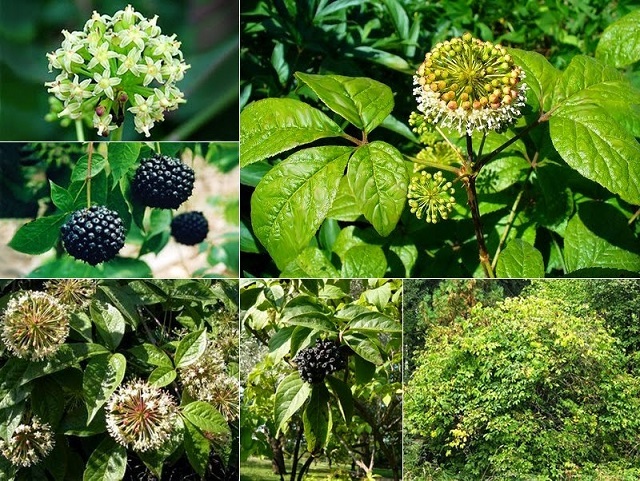
Eleutherococcus is a high( up to 4 m) spiny shrub with horizontal rhizomes.On the upright trunks of the plant there are many thin thorns.Leaves of a peculiar "five-fingered" shape have long petioles( up to 15 cm).Collected in umbellate inflorescences or single flowers Eleutherococcus rather small, but have a very strong pleasant smell.
A characteristic feature of the bush is the presence on one plant of female, male and bisexual flowers.
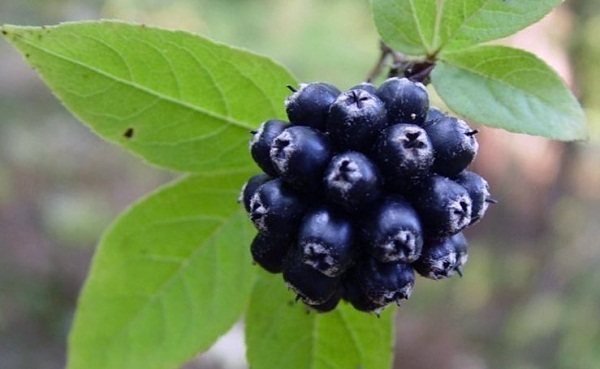 The flowering time of the healing plant falls on the second half of July - the beginning of August, and the fruits, which are spherical black berries, ripen from the beginning to the middle of autumn.The embryo in seeds-bones( 5 pieces in each berry) is underdeveloped and can germinate only in the second year.
The flowering time of the healing plant falls on the second half of July - the beginning of August, and the fruits, which are spherical black berries, ripen from the beginning to the middle of autumn.The embryo in seeds-bones( 5 pieces in each berry) is underdeveloped and can germinate only in the second year.
Important: plant berries are considered poisonous!
The greatest value as a medicinal raw material is represented by roots and rhizomes harvested in autumn.
Biologically active components
Eleutherococcus contains virtually all compounds that exist in the root of Ginseng.The properties of certain chemicals are not fully understood at the present time.
A high concentration of glycosides( eleutherosides) containing coumarin and triterpene phenolic compounds was found in the roots.They are the main active substances of this healing plant.Present in Eleutherococcus and gums, bioflavonoids, anthocyanins, pectins, resins, protein and lipid compounds, oleic acid, essential oil and alkaloid aralin.
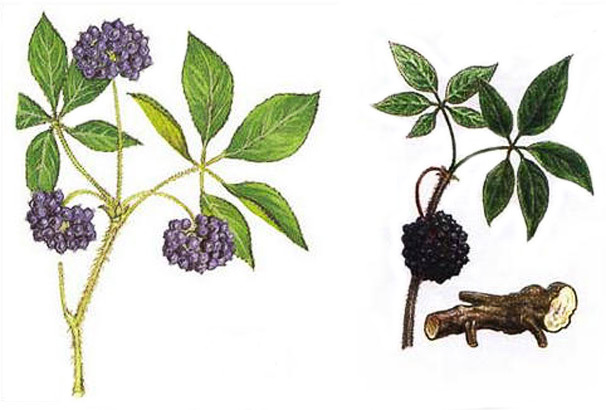
Useful properties Eleutherococcus
Eleutherococcus is a universal adaptogen.It stimulates the process of biosynthesis of specific proteins and nucleic acids.The components present in this shrub contribute to an increase in working capacity and overall endurance.Means on its basis are shown for increasing the activity of the nervous system and raising vitality.
Eleutherococcus is able to improve visual acuity, stabilize the level of sugar and hemoglobin in the blood.
A heal plant increases the functional activity of the organs of the reproductive system.Regular consumption of rhizome extract helps to improve sleep.
An adaptogen plant increases the body's overall resistance to overheating, hypothermia, the action of poisons and toxins produced by pathogenic bacteria.
Eleutherococcus stimulates hemopoiesis( the process of hematopoiesis), accelerates the overall metabolism and improves appetite.Active substances can regulate redox processes, stabilize blood pressure and even increase the "vital volume" of the lungs.
It has been established that taking the preparations of Eleutherococcus rhizomes significantly reduces the likelihood of the appearance of cancer tumors.
Indications for the use of drugs from Eleutherococcus
Eleutherococc preparations are prescribed for:
-
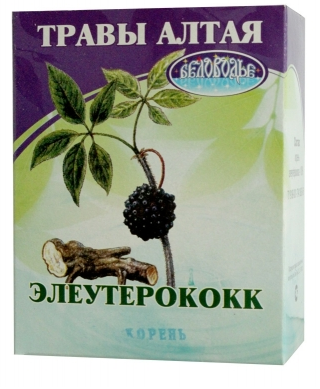 ARI and many other infectious diseases of bacterial and viral origin( including herpes);
ARI and many other infectious diseases of bacterial and viral origin( including herpes); - benign and malignant tumors( as part of combination therapy);
- of radiation sickness;
- diabetes mellitus;
- diseases of the dental system( gingivitis and stomatitis);
- leukemia;
- osteochondrosis;
- poisoning;
- vision impairment;
- hearing impairment;
- traumatic injuries of the skin;
- seborrhea( for external use);
- total reduction of mental and physical performance;
- mental abnormalities;
- pathologies of the nervous system associated with overwork;
- asthenia;
- hypotension( low blood pressure);
- disorders of the menstrual cycle;
- infertility;
- decreased potency;
- chronic pyelonephritis;
- alopecia( externally applied decoction).
Important: extract Eleutherococcus is prescribed for chemotherapy of malignant tumors for general strengthening of the body.
Side effects of preparations Eleutherococcus
In some cases, a brief increase in blood pressure is possible.
If the recommended dosages are exceeded, diarrhea may develop.
Prolonged course treatment sometimes causes swelling due to fluid retention in the body.
Contraindications to the use of preparations Eleutherococcus
The vast majority of people perfectly tolerate therapy with Eleutherococcus.
Contraindications to the prescription of agents based on this plant are:
-
 allergy to this plant;
allergy to this plant; - hypertension;
- arrhythmia;
- myocardial infarction;
- cirrhosis of the liver( for alcohol extracts);
- chronic alcoholism( for pharmaceutical infusions);
- marked atherosclerosis;
- epilepsy;
- convulsions;
- insomnia.
Important: with regular consumption of Eleutherococcus does not exclude weight gain.
Recommended doses of
Adults and adolescents who have reached the age of 12 years are advised to take 20-30 drops of the pharmacy tincture Eleutherococcus in the morning hours half an hour before meals.The course reception is shown.The duration of the course is 3-4 weeks.
Overdose
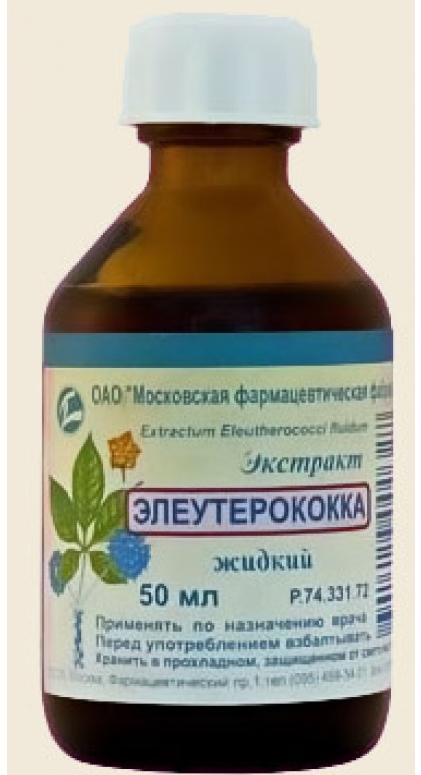 If the prescribed daily dosage is significantly exceeded, the following are possible:
If the prescribed daily dosage is significantly exceeded, the following are possible:
- headache;
- heart palpitations;
- unmotivated sense of anxiety;
- sleepiness.
Interaction of tincture Eleutherococcus with other pharmacological preparations
Eleutherococcus preparations are antagonists of barbiturates, antiepileptic drugs and tranquilizers.
Eleutherococcus potentiates the action of drugs from a group of analeptics and psychostimulants.
Specific recommendations for use Eleutherococcus
It is not recommended to drink Eleutherococcus in the evening to avoid disturbance of night sleep.Admission requires control of blood pressure.
During course treatment it is not recommended to drive vehicles and work with other mechanisms that are dangerous.
Eleutherococcus during pregnancy
Women can not take Eleutherococcus during gestation and breastfeeding.In some cases, the attending physician may prescribe medicinal plant preparations if the future mother has pronounced hypotension accompanied by fainting and headaches.
Eleutherococcus for children and adolescents
Children Eleutherococcus may be given in small doses( 1 drop of a drug per year of life of the child).Multiplicity of admission - 2 times a day.A unique plant helps small patients to fight "seasonal" infections.It is not recommended to appoint Eleutherococcus to children if the child has an increased nervous excitability( hyperactivity).
Pharmacy form
 In the pharmacy chains, you can buy Eleutherococcus liquid extract, which is a dark brown liquid with a specific odor.The drug is an alcohol extract from the rhizomes of a healing plant.
In the pharmacy chains, you can buy Eleutherococcus liquid extract, which is a dark brown liquid with a specific odor.The drug is an alcohol extract from the rhizomes of a healing plant.
As a food additive, powder from dried Eleutherococcus rhizomes is used.It is indicated for anemia, metabolic disorders, liver, kidney and gastrointestinal tract diseases.Powder can be used as an external agent for the treatment of wounds and ulcers.
Eleutherococcus based syrup is effective for enhancing immunity and is used in the complex treatment of Alzheimer's disease.
Storage conditions and shelf life
The pharmacy extract is stored at a temperature of + 15 ° C to + 25 ° C in a place shielded from sunlight.
Shelf life is 4 years.During storage, precipitation is allowed.
Recipes
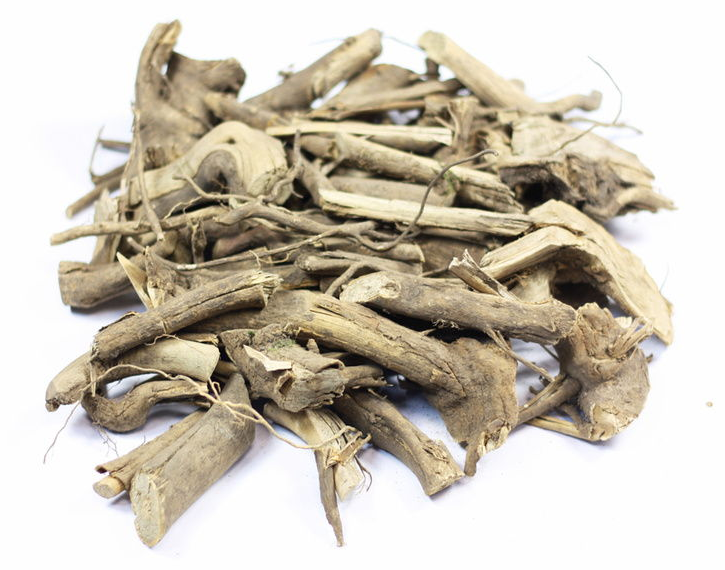
Prescription for tincture Eleutherococcus
To prepare the Eleutherococcus tincture alone, take 100 g of dried plant substrate and pour 400 ml of vodka or 40% solution of medical alcohol.Insist in tightly sealed containers in a dark place for 2 weeks, occasionally shaking.Ready drug to drain and take inside 20-25 drops before meals 3 times a day.Tincture can be used as a means for external use( preparation of lotions or wipes).
Tea recipe from Eleutherococcus
To prepare a healing toning tea, take 1 tbsp.A spoonful of dried crushed rhizomes and pour 200 ml of boiling water.Infuse in sealed container for 10 minutes.A drink is recommended to consume 1 glass 3 times a day instead of regular tea while eating.
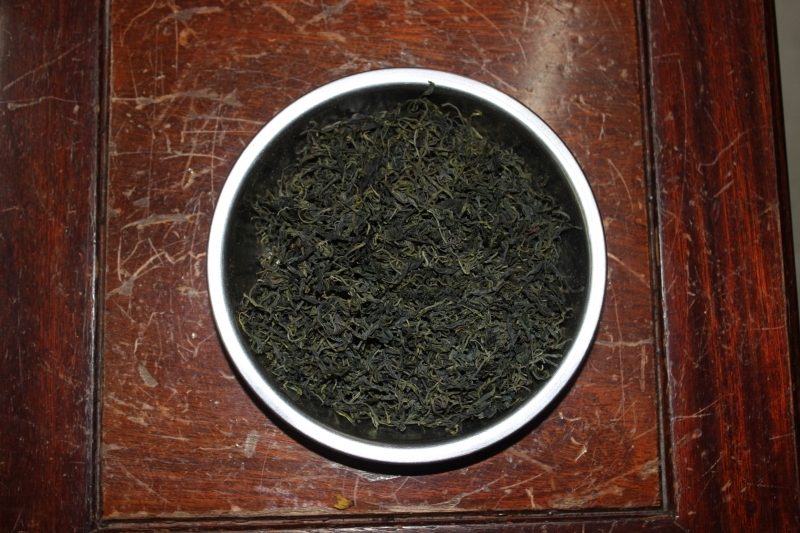
Preparation of decoction from the rhizomes of the plant
10 grams of crushed dried rhizomes Eleutherococcus and 5 g of dry calendula flowers pour 0.5 liters of water, put on a slow fire, bring to a boil and boil for 10 minutes.Ready to cool the broth and strain.Broth Eleutherococcus( rhizome) is used for rubbing the scalp for seborrhea and alopecia, as well as for rinsing hair with brittle hair.It is recommended to use this product 2 times a week.
Vladimir Plisov, fitotherapist


